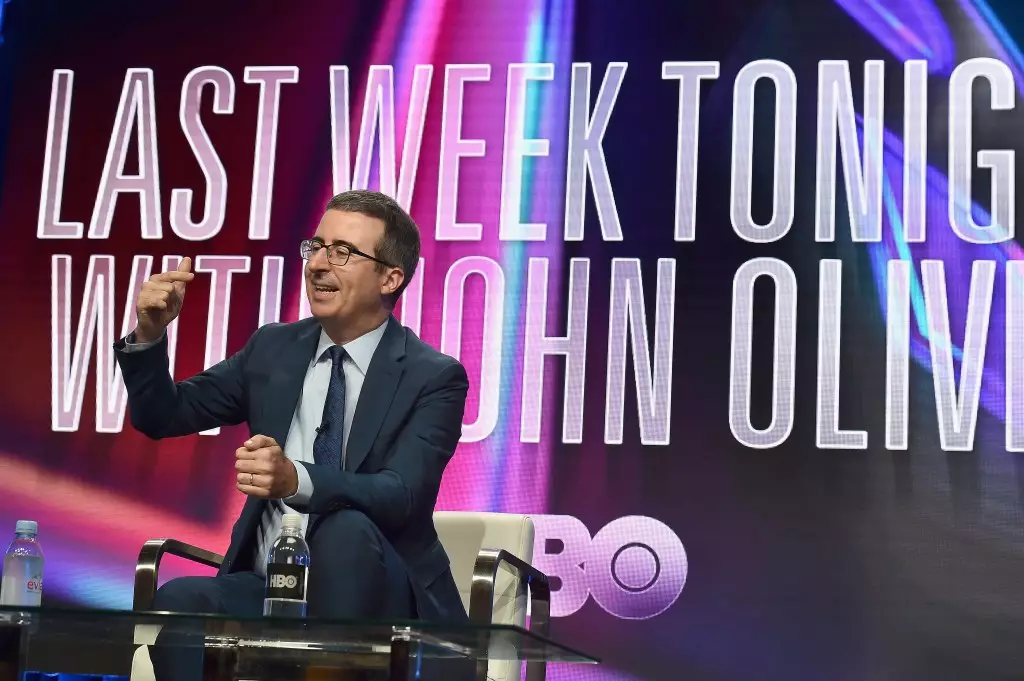John Oliver has built an empire on satirical commentary, expertly critiquing societal issues with humor that captivates millions. His show, “Last Week Tonight,” frequently tackles the intricacies of healthcare, politics, and social justice, often inciting outrage among viewers. However, this witty delivery sometimes treads into perilous legal waters. A recent defamation lawsuit filed by Dr. Brian Morley, the former medical director of AmeriHealth Caritas, against Oliver and the show’s producers illuminates this precarious intersection of comedy and legal accountability.
Emerging from an episode discussing Medicaid fraud, Dr. Morley’s claims echo with potential implications not only for Oliver but also for the broader field of media satire. The lawsuit asserts that Oliver, while expressing his indignation towards Dr. Morley’s comments made during a Medicaid hearing, misrepresented the doctor’s stance, suggesting a lack of care and compassion towards patients requiring significant medical assistance. This case raises important questions: To what extent can humor be used in serious discussions without inviting backlash? When is the line crossed from satire into defamation?
Defining the Boundary of Satire and Truth
At the heart of this legal entanglement lies the question of what constitutes defamation. According to Dr. Morley’s legal team, Oliver’s statements painted him as morally reprehensible, suggesting he condoned allowing patients to remain unclean for extended periods. They argue that such fabrications were intentionally designed to ignite viewer outrage, which indeed they did. For a public figure like Oliver, who thrives on controversial content, this allegation represents a fraught crossroads of artistic expression and ethical responsibility.
One of the pivotal aspects of the lawsuit is the claim that Oliver and his team had access to full context yet chose to manipulate Dr. Morley’s testimony to fit their narrative. The tension between freedom of speech, particularly in the realm of satire, and the duty to uphold factual accuracy complicates this case. Oliver’s humorous take might arguably blur the lines of accountability, as his ultimate goal could be perceived as eliciting laughter and critical thought rather than delivering an accurate depiction of events.
The Power of Perception
The lawsuit not only challenges Oliver personally but also scrutinizes the larger implications of how media shapes public perception. In a landscape overflowing with information, the potential for misunderstanding runs rampant; the responsibility of creators to present balanced narratives is crucial. Dr. Morley’s assertion that Oliver’s portrayal misled viewers about his professional integrity poses significant ramifications for how satire is received by the audience.
Moreover, the emotive nature of Oliver’s delivery—using exclamations like “fuck that doctor with a rusty canoe”—amplifies the stakes involved. When lines of humor become statements of supposed fact, the potential for harm extends beyond the individual depicted. This raises ethical dilemmas regarding the obligation of creators to ensure their humor does not lead to unwarranted reputational damage. If the audience takes these portrayals at face value, the consequences could ripple far beyond a single show.
Potential Consequences and the First Amendment Defense
The legal documents filed commendably shed light on the stakes involving First Amendment rights. While Oliver enjoys significant protections under the principle of free speech, the assertion that a statement was made with “reckless disregard for the truth” casts a shadow of uncertainty over his defense. The case could serve as a litmus test for how far satire is allowed to stretch in its quest for humor without undermining the truth of a person’s character.
As the situation unfolds, it is imperative to recognize the implications of this lawsuit not just for Oliver but for the landscape of comedy and commentary. If the court decides to side with Dr. Morley, it may establish a precedent that restricts creative expression, potentially stifling other entertainers from tackling controversial subjects.
The legal showdown between John Oliver and Dr. Morley is but a microcosm of a much larger discussion within society—the balance between speaking truth to power through humor, while also ensuring that such expressions do not devolve into misrepresentation and defamation. The outcome of this case could redefine the boundaries within which such commentary operates, influencing the future of satire and media portrayal in our increasingly polarized world.
